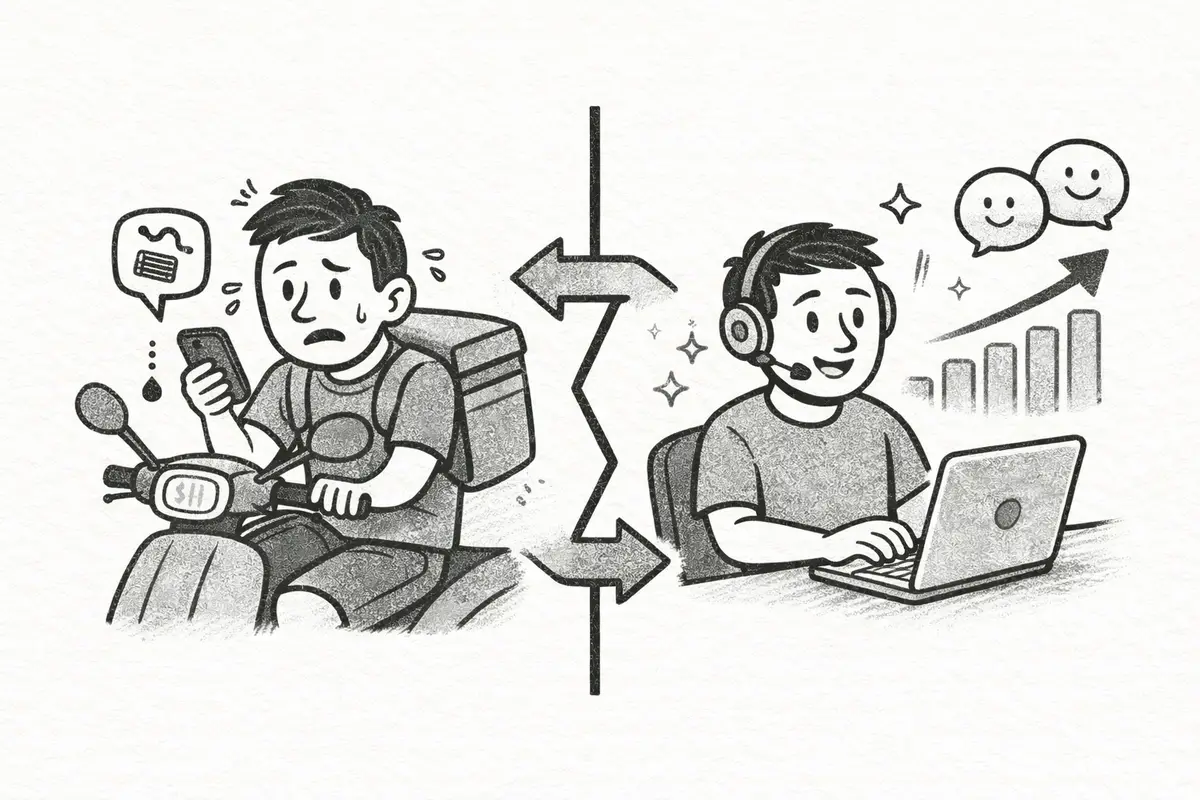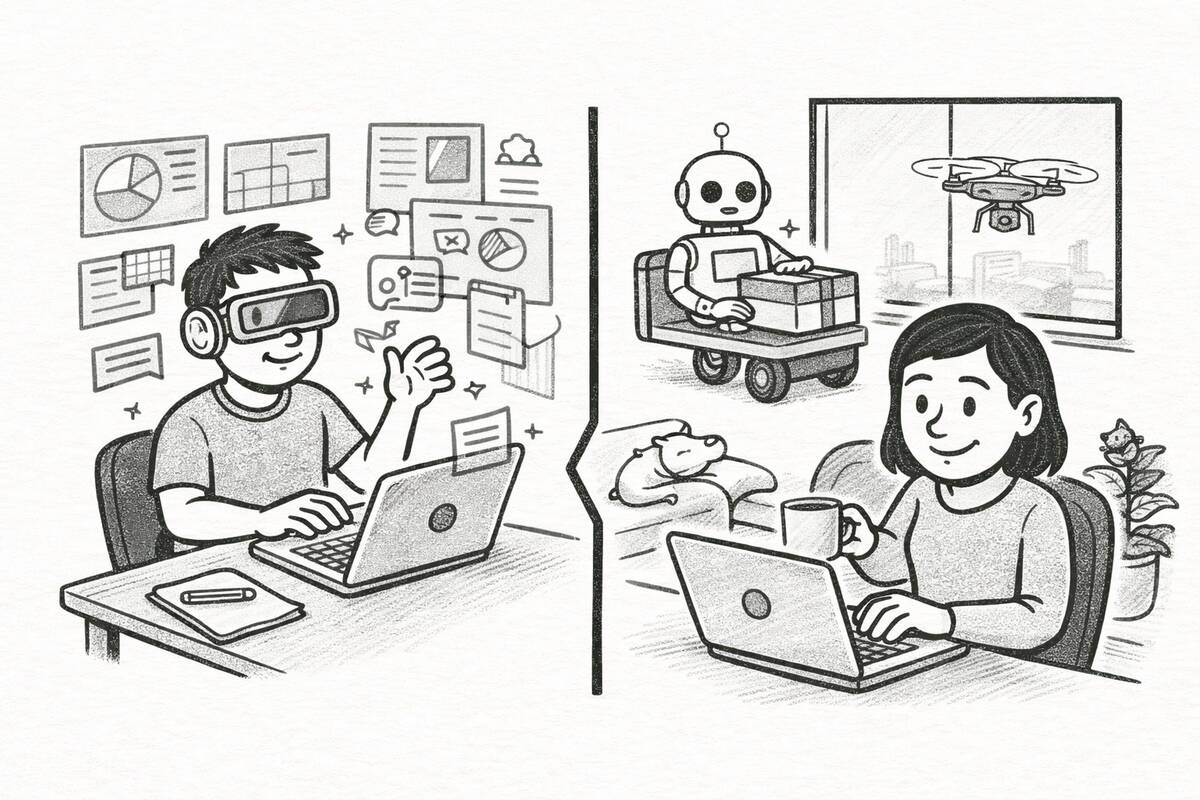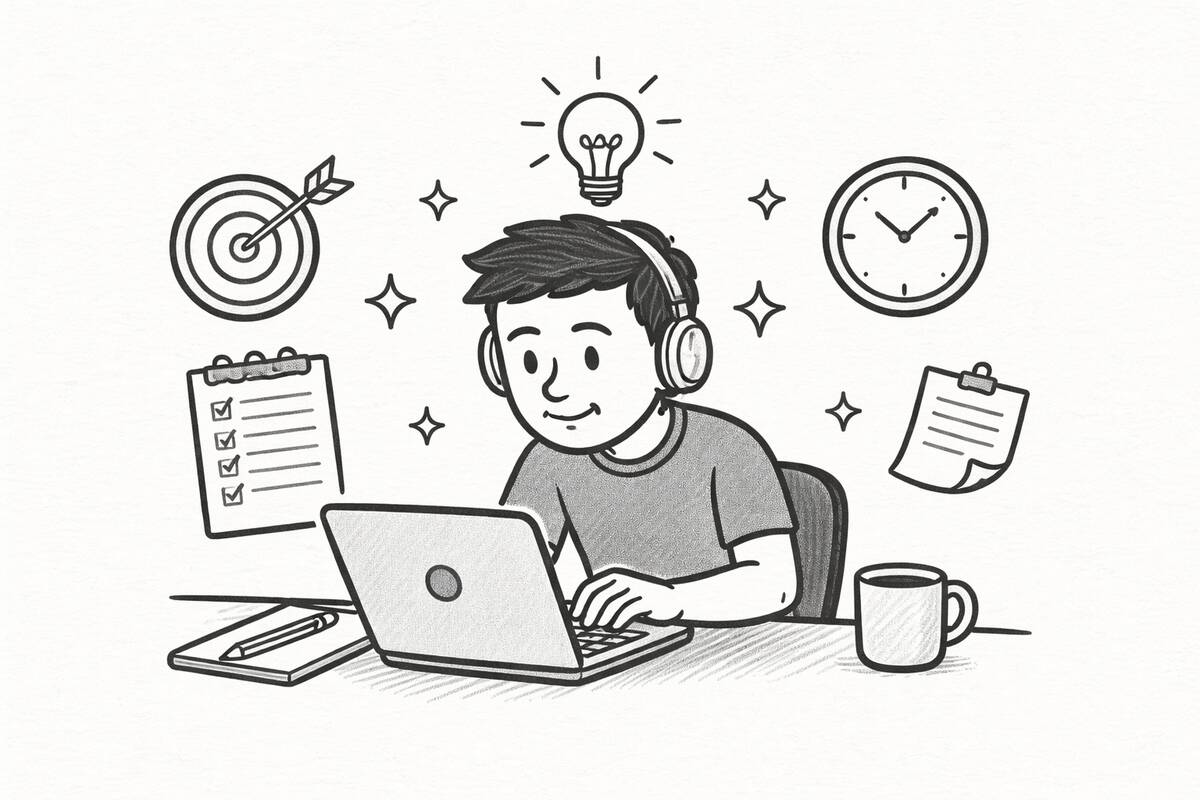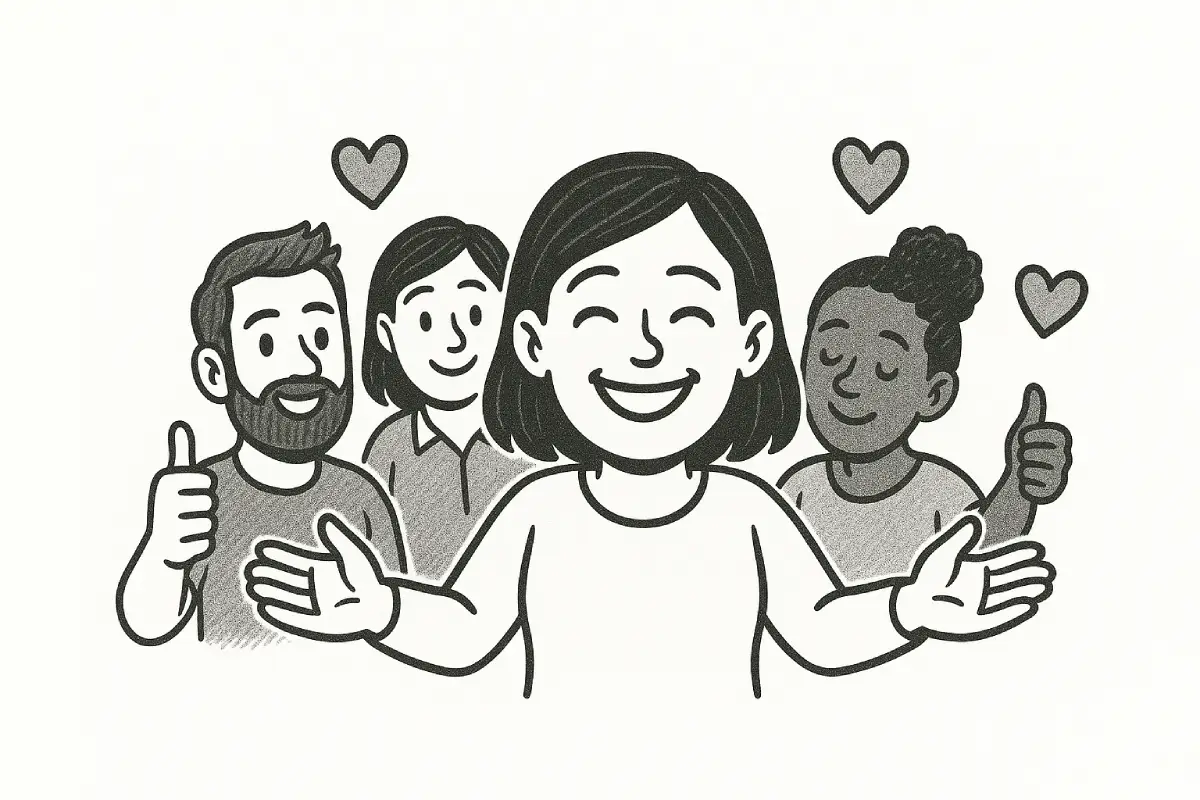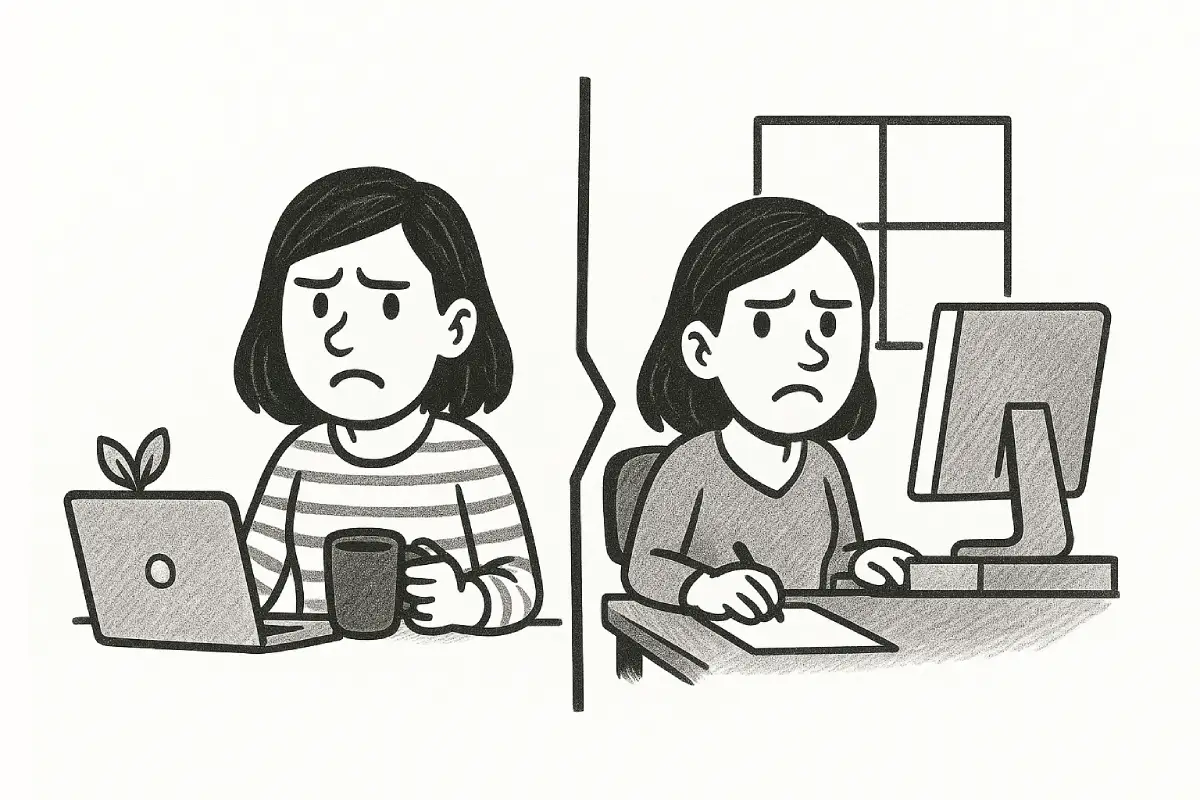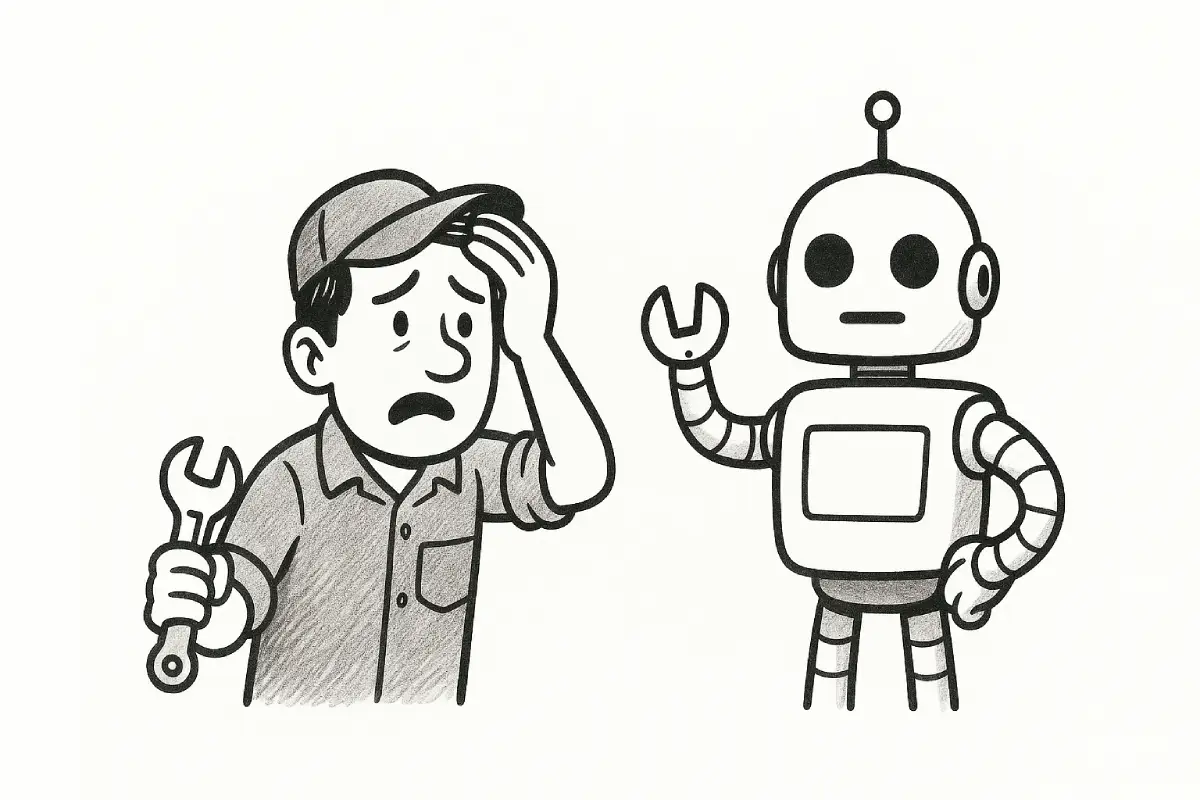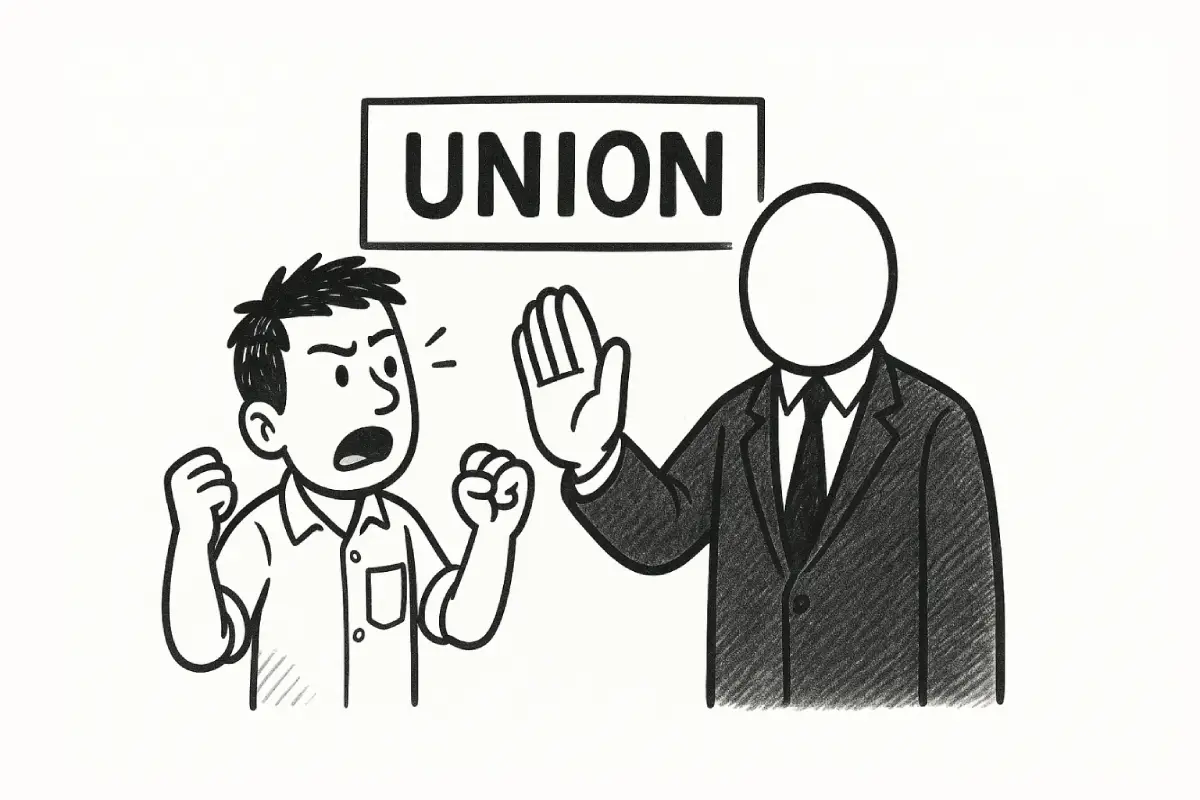You know, it’s strange how revolutions never look like revolutions when they actually happen. They creep up—quietly, annoyingly, like an extra tab you forgot to close—and then one day you realize the world already crossed some invisible line. Remote work is exactly that kind of revolution. One week you’re commuting in sweaty public transport, wasting an hour in fluorescent offices, sipping stale coffee; the next, you’re checking Slack in your pajamas with a half-eaten omelet on the desk. And the puzzle is: is this our future, or just a weird interlude between crises?
The Myth of “Temporary Measures”
People love calling remote work a stopgap, a patchwork solution for turbulent times. But come on, who are we kidding?
Remote work came out of necessity; it stayed because people discovered they don’t actually need (or want) the daily grind of offices.
The pandemic was a catalyst, sure, but the deeper truth is this: workplaces were long overdue for a break from the rigid, cubicle-driven formula. Think about it. For decades, we operated under this unspoken assumption that productivity equals being physically present. Sitting at your desk—whether or not you were actually working—served as proof of value. Absurd, isn’t it?
Now, companies and employees alike are starting to realize that value doesn’t live in hours-clocked. It lives in results. In ideas. In deliverables that don’t care if you made them in an ergonomic chair or on your couch wearing mismatched socks.
What’s Actually Changing
Let’s not get too utopian though. Remote work isn’t all sunshine and avocado toast. Some very concrete, structural shifts are happening:
- Geography no longer rules hiring. A Berlin startup can hire a coder from Jakarta or Lisbon. That’s thrilling—and threatens the whole concept of “local job markets.”
- Work-life balance is suddenly negotiable. Employees, sick of burnout, are pushing back. They want flexible hours, not just flexible locations.
- The office still lingers. Hybrid models are sprouting everywhere. Some insist face-to-face still matters for culture, mentorship, those watercooler sparks of creativity.
And here lies the tension: do we even need offices anymore? Or are they slowly becoming museums for organizational rituals? Imagine touring cubicles one day with your grandkids—“This is where people used to answer emails in person.”
The Psychological Rollercoaster
Funny thing, though—working from home is both liberating and maddening. I’ll admit, on some days, the quiet feels luxurious. You can hear yourself think. Other days? The silence feels like cement. Loneliness creeps in, and no amount of Zoom “happy hours” can disguise the fact that you’re staring at a screen full of pixelated colleagues, pretending to smile at jokes that glitch mid-punchline.
Remote work didn’t eliminate stress. It just moved it around like furniture.
Isolation, blurred boundaries, the constant temptation to multitask badly—it’s all part of the tradeoff. And yet, despite the mess, many workers argue it beats the alternative. At least here, you get to choose your mess. Office life never gave you that.
Culture Clashes and Managerial Angst
Companies are panicking a little, let’s be honest. Traditional managers, trained in control-through-visibility, are now grappling with trust. You can’t lean over someone’s shoulder on Zoom. Micromanagement doesn’t translate well across time zones.
So what do they do? They buy software that tracks keystrokes or takes random screenshots. And what do employees do? They game the system—mouse jigglers, fake-green status lights, you name it. A Cold War of productivity theater.
Is that sustainable? Probably not. The future of remote work depends on shifting company culture from suspicion to trust. Results, not surveillance. Easy to say, harder to practice.
Technology: Both the Solution and Problem
Without tech, remote work wouldn’t exist. But tech is also the thorn in its side. Slack pings at midnight, emails stack up like Tetris blocks, and the expectation of constant availability looms heavy. Workers joke that “remote” just means the office follows you into your living room.
Still, technology will almost certainly refine remote work. Better virtual collaboration tools (beyond the stale grid of Zoom faces), immersive VR workspaces, AI assistants filtering noise—it’s all being prototyped as we speak. Maybe offices won’t disappear, but our sense of presence could become unlinked from geography altogether. Imagine logging into a “virtual HQ,” greeting your coworker’s avatar, then jumping into a brainstorming wall where sticky notes practically float in mid-air. Sounds goofy, but hey, people once laughed at smartphones too.
Future Generations and the Shape of Work
Here’s what really changes the game: the kids growing up now won’t even understand our debates. For them, “work = physical office” may sound as outdated as “telegram = communication.” Remote work will be the default, and only niche roles (surgeons, mechanics, firefighters) will cling to a physical model by necessity.
The definition of career could fracture:
- Shorter gigs rather than long careers with one employer.
- Multi-threaded identities (designer by day, podcaster by night).
- A lifestyle-first approach, where work flexes around life, not the other way round.
That’s not sci-fi—it’s unfolding in real-time.
The Human Side (Mess and All)
All transformations come with baggage. Remote work has its share: loneliness, inequities (not everyone has a quiet room or fast Wi-Fi), the risk of blurring labor protections. And those deeply human rituals—commuting playlists, lunch breaks with colleagues, Friday banter—they’re not just fluff. They built culture, belonging, identity.
Which begs the hard question: can we re-create those human textures digitally? Or do we accept that something’s lost, forever, in exchange for freedom?
Maybe the answer isn’t neat. Maybe the future of work is messy, hybrid, personalized. Some thrive in isolation, others wilt. Some companies will ditch offices forever, others will reinvent them as collaborative temples rather than gray 9-to-5 prisons. Choice might be the only constant.
A Closing Thought (Sort of)
So—remote work: the future workplace or just another passing fad dressed in pajama pants? My guess leans toward permanence. Not because it’s perfect (it’s not), but because it feels inevitable. Once you see that work doesn’t require a physical cage, you can’t unsee it.
The future of the workplace isn’t about remote vs. office—it’s about freedom, trust, and the messy business of figuring out what kind of environments bring out the best in humans.
And that’s the kicker. The workplace of tomorrow won’t be a place at all—it’ll be a choice, maybe even a patchwork of places and tools and rhythms that don’t always line up neatly but somehow, against the odds, still get the job done.
You might also like: The Science of Focus: How to Actually Get Work Done in 2026


